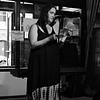Take a photo of a barcode or cover
This was my first Virginia Woolf novel. It took me a while to get through it, but I'm glad I did. :)
I found the story line confusing at times but at the same time find her writing style ingenious.
This contains Woolf's early stories she based Mrs. Dalloway on, essays by famous authors on Mrs. Dalloway and Woolf, then the text of the novel. I'm glad I had the Oxford World's Classic edition of the novel, as it had notes and the one in this reader is unannotated, though that would be helpful when I re-read it. Like any book, though, if you haven't read it before recently, I say read the novel first, then the introduction stuff. I read Mrs. Dalloway, then the introduction to that edition, then read The Hours, then read this, then watched The Hours and am very happy with that order of operations.
Giving this 5 stars because I have to give it something, and the novel itself is 5 stars in my mind, though what this review pertains to is that content which is exempted from a review—for how do I review the editor’s compilation of diaries, shorts, essays, and letters when I know nothing of the position—and thus I will not provide a critical or reader score, nor the official star marks.
I am quitting the titular novel work only 15 pages in, as I’ve only 5 days before it is due for class, but primarily because I have read the novel before, 2 and a half years ago. While I would actually want to re-read this, for it is rare that ever the interest of returning to a book falls upon me, I think it impractical to read the remaining 160 pages, either for class or for merit (in the likely case that I wouldn’t complete the task by Monday’s lecture) when there are so many other books on my plate. So it goes; how’s that for some intertextuality?
The materials in this collection are fascinating, though I imagine rather limited in scope. Nevertheless, this is a terrific expansion of my understanding of the work, though I take my leave with a bit of guilt.
I am quitting the titular novel work only 15 pages in, as I’ve only 5 days before it is due for class, but primarily because I have read the novel before, 2 and a half years ago. While I would actually want to re-read this, for it is rare that ever the interest of returning to a book falls upon me, I think it impractical to read the remaining 160 pages, either for class or for merit (in the likely case that I wouldn’t complete the task by Monday’s lecture) when there are so many other books on my plate. So it goes; how’s that for some intertextuality?
The materials in this collection are fascinating, though I imagine rather limited in scope. Nevertheless, this is a terrific expansion of my understanding of the work, though I take my leave with a bit of guilt.
challenging
reflective
Published by Harcourt in 2003, this is a beautifully conceived and made book. The novel itself is the last bit of the volume, so if you have not read Mrs Dalloway, you may prefer to begin at page 163 before exploring all the supporting materials. These include: Mrs Dalloway's Party, Woolf's set of short stories that are a small first step towards the novel; "The Garden Party", a short story by her friend/rival Katherine Mansfield; an essay by another friend, E. M. Forster on Woolf's early novels (including Mrs Dalloway); brief extracts from Woolf's diaries; several other essays about Woolf and her work by assorted literati and critics. There is something to be said for simply engaging with the novel itself, but if you want context, there's plenty here.
This book was both challenging and rewarding.
I feel so comforted by the embodiment of silliness that Mrs. Dalloway allows herself to take up in the novel. To savor the frivolous, to mindfully experience every moment of the day, is the only way to fully live.
The repetition of “the leaden circles dissolved in the air” was absolutely perfect. A reminder of the passage of time, of the collective experience of the Londoners consciousness, of the aftermath of a breath health in excitement. It puts itself in direct contrast to the ending, where Peter experiences the “ecstasy,” the “extraordinary excitement” of seeing Clarissa. It seems an optimistic ending but it leaves me to wonder how that moment will dissolve in the air. Surely that will not end so happy.
I loved Clarissa’s “death” in the quiet room of the party. A visceral moment that ends in utter release as the noise of death that has weighed her down throughout the day is lifted.
Not sure what to feel about Ms. Kilman. Intellectually, I want so badly to support her and critique of this class and the failing of her society. But she is just too miserable! So hard to relate to. Her possessiveness of Elizabeth is off-putting as well. But surely she is not the hero of this novel?
I cannot quite see how it is Mrs. Dalloway, with her flaws. Although she has her rebirth, she does not address all of her flaws.
Could it be Peter? Who finally addresses his feelings for Clarissa?
Is there one hero at all?
A note on the essays leading up to the novel in this edition: what a wonderful way to mimic the structure of the novel itself, and the transition from one’s mind and perspective to another!! Incredibly clever.
I feel so comforted by the embodiment of silliness that Mrs. Dalloway allows herself to take up in the novel. To savor the frivolous, to mindfully experience every moment of the day, is the only way to fully live.
The repetition of “the leaden circles dissolved in the air” was absolutely perfect. A reminder of the passage of time, of the collective experience of the Londoners consciousness, of the aftermath of a breath health in excitement. It puts itself in direct contrast to the ending, where Peter experiences the “ecstasy,” the “extraordinary excitement” of seeing Clarissa. It seems an optimistic ending but it leaves me to wonder how that moment will dissolve in the air. Surely that will not end so happy.
I loved Clarissa’s “death” in the quiet room of the party. A visceral moment that ends in utter release as the noise of death that has weighed her down throughout the day is lifted.
Not sure what to feel about Ms. Kilman. Intellectually, I want so badly to support her and critique of this class and the failing of her society. But she is just too miserable! So hard to relate to. Her possessiveness of Elizabeth is off-putting as well. But surely she is not the hero of this novel?
I cannot quite see how it is Mrs. Dalloway, with her flaws. Although she has her rebirth, she does not address all of her flaws.
Could it be Peter? Who finally addresses his feelings for Clarissa?
Is there one hero at all?
A note on the essays leading up to the novel in this edition: what a wonderful way to mimic the structure of the novel itself, and the transition from one’s mind and perspective to another!! Incredibly clever.
I read this alongside Michael Cunningham's The Hours. This book contains wonderfully insightful analyses of Mrs Dalloway and into Virginia Woolf's life and art generally. There are also some complementary pieces such a short story by her peer Katherine Mansfield. While a bit dearer to buy, it's economical ultimately as it contains not only the novel, but also Mrs Dalloway's Party, also sold as a separate book. And then you get all the essays, diary entries and other bits. An excellent deal if you want to submerge. And read alongside The Hours, the value extracted was tremendous.
Another summer read. I actually got a walking map of London and traced the characters' movement. What an accomplishment. Woolf took a trivial woman and made us care about her and all the people she touched that day. Masterful writing...
Reading for the book club group at the library. Yes, I started a book club. With graduate school. Am an idiot....




